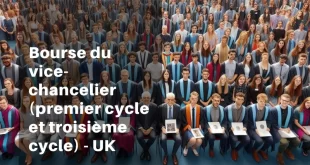Fellowship Details
- Award: $40,000 stipend for the fellowship year, plus up to $8,000 for project-related research, training, development, and travel costs. The award also includes a $2,000 stipend for external mentorship.
- Tenure: one year beginning between July 1 and September 1, 2024.
- Completed applications must be submitted through the ACLS online fellowship administration system (ofa.acls.org) no later than 9 PM Eastern Daylight Time, October 25, 2023.
- Notifications will be sent via email by early April 2024.
- For information on how to request reviewer feedback, see FAQ.
Summary
ACLS invites applications for Mellon/ACLS Dissertation Innovation Fellowships, which provide a year of support for doctoral students preparing to embark on innovative dissertation research projects. This program is made possible by a grant from the Mellon Foundation.
Mellon/ACLS Dissertation Innovation Fellowships support graduate students in the humanities and social sciences who show promise of leading their fields in important new directions. The fellowships are designed to intervene at the formative stage of dissertation development, before research and writing are advanced. The program seeks to expand the range of research methodologies, formats, and areas of inquiry traditionally considered suitable for the dissertation, with a particular focus on supporting scholars who can build a more diverse, inclusive, and equitable academy.
ACLS believes that humanistic scholarship benefits from inclusivity of voices, narratives, and subjects that have historically been underrepresented or under-studied in academe. We especially welcome applications from PhD candidates whose perspectives and/or research projects cultivate greater openness to new sources of knowledge, innovation in scholarly communication, and, above all, responsiveness to the interests and histories of people of color and other historically marginalized communities, including (but not limited to) Black/African American, Hispanic/Latinx, and Indigenous communities from around the world; people with disabilities; queer, trans, and gender nonconforming people; and people of diverse socioeconomic backgrounds. We also believe that institutional diversity enhances the scholarly enterprise, and we encourage applications from doctoral students from all accredited institutions of higher education in the United States.
The program supports projects that push the traditional approaches and forms of dissertation research in new directions. The strongest applications will show evidence of thoughtful plans for engaging the sources, resources, scholars, and communities – on campus and/or off – necessary to advance their projects. Fellows might design a fellowship year that includes:
- directed interdisciplinary research and methodological training that pushes beyond the scope of their field’s norms with faculty within and/or outside their home institutions;
- exploration of new modes of scholarly communication and dissertation design;
- intensive digital methods training and research;
- collaboration with community partners;
- a short-term practicum with a non-academic organization (such as a think-tank or social justice organization) to develop experience with applied methods, site-based research involving community-engaged or collaborative approaches.
The list above is by no means exhaustive. Innovation might take a variety of forms, and with this program, ACLS seeks to support a range of innovation in doctoral research — trans- or interdisciplinary, digital, collaborative, critical, methodological, etc. — as well as innovative forms and modes of publication.
ACLS has long supported interdisciplinary work and collaboration with partners outside of the academy through our various fellowship programs, and the program would welcome proposals from graduate students, in consultation with advisors and/or departmental directors of graduate study, that engage with scholars from other institutions, disciplines, or from sectors outside of the academy.
These fellowships also support the expansion of an applicant’s advisory network through external mentorship. The external mentor, who might come from another division of the university, another academic institution, or from beyond the academy, should be selected for the mentor’s capacity to offer critical perspective and expertise on the fellow’s project.
ACLS will award up to 45 fellowships in this competition for a one-year term beginning between July and September 2024 for nine to twelve months, covering the 2024-25 academic year. The fellowship may be carried out in residence at the fellow’s home institution or at any other appropriate site for the research. These fellowships may not be held concurrently with any other fellowship or grant.
The total award includes a $40,000 stipend for the fellowship year, as well as up to $3,000 for research and travel, and up to $5,000 in professional development funds to support skills acquisition or additional research to support innovative/expansive directions. An additional $2,000 is available as a stipend for the external mentor.
Eligibility
The basic eligibility criteria for applicants are outlined below. As opposed to fellowship programs that support dissertations where writing and research is well underway, advanced, or nearing completion, this program intends to intervene at the formative stages of project development. Given the variation in graduate student trajectories, and the variation of curricular requirements across departments and schools, this program’s eligibility window covers a varying a flexible period in the middle of doctoral study. Some applicants may be applying in the year immediately before achieving candidacy/ABD status, or the year they achieve candidacy, to support the first stretch of work as a PhD candidate; others may seek to expand their field/methodological horizons at a relatively earlier stage of their graduate studies. As described in the criteria below, the program requires applicants to have completed all required coursework in their doctoral curriculum by the time the fellowship commences. Individuals must be enrolled full-time and may not accept teaching or research assistantships, other major fellowships, internships, or similar internal or external awards during fellowship tenure.
Applicants must:
- Be a PhD student in a humanities or social science department in the United States.1
- Be able to take up a full year (9-12 months) of sustained specialized research and training, released from normal coursework, assistantships, and teaching responsibilities.
- Have completed at least two years and all required coursework in the PhD programs in which they are currently enrolled by the start of the fellowship term.
- Have not advanced to PhD candidacy/ABD status prior to January 1, 2023.
- have not previously applied for this fellowship more than once.
(1) The Mellon/ACLS Dissertation Innovation Fellowship program does not accept applications from students receiving professional or applied PhDs, terminal degrees that are not a PhD (such as an EdD or MFA), or PhDs outside of humanities and social science departments, including the following disciplines: business, clinical or counseling psychology, creative or performing arts, education, engineering, filmmaking, law, library and information sciences, life/physical sciences, public administration, public health or medicine, public policy, social work, or social welfare. If you are unsure whether your department or interdisciplinary program qualifies you for this fellowship program, please email fellowships@acls.org with a brief summary of your affiliation.
Note that transcripts are not required.
Evaluation Criteria
Reviewers in this program are asked to evaluate all eligible proposals on the following criteria:
- The potential of the project to advance the field(s) of study in which it is proposed and make an original and significant contribution to knowledge.
- The potential of the project to challenge scholarly convention and/or expand the prevailing norms of what constitutes important scholarship through its innovative format or formats, its novel methodology, subject matter, or theoretical framework, or its meaningful engagement with an interdisciplinary and/or community partner. ACLS seeks applicants who have a strong grasp of the existing norms and trends in their primary discipline of study, and who have taken advantage of the opportunities available in their department and campus to advance their training and scholarly projects.
- The feasibility of the proposed project and the likelihood that the applicant will execute the work within the proposed time frame (during and after the fellowship term).
- Fulfillment of one or more of the following factors:
- Applicant’s membership in one or more groups that have been historically underrepresented in the professoriate, including but not limited to Black/African Americans, Latinx/Hispanic Americans, Native Americans, and Pacific Islanders.
- The project’s thoughtful engagement with communities that are historically underrepresented in higher education and the potential for this experience to shape research.
- Scholarship and scholarly practice that is responsive to the interests and histories of people of color and other historically marginalized communities.
Application Guidelines
Applications must be submitted online and must include:
- Completed application form.
- Proposal (no more than seven pages, double spaced, in Arial or Helvetica 11-point font, including any footnotes or endnotes).
- The applicant should describe the aims of their research and clearly explain how they will advance those aims during the fellowship period.
- The proposal should also include a description of the training, workshops, travel, research permissions, or anything else the applicant feels will be necessary to advance the project during the fellowship term. For any of these items, but especially in the case of research permissions, how will you go about securing them? (See our FAQ on research permissions.)
- If the applicant has already identified an external mentor, please note the mentor in the proposal and describe how that individual was selected. If the mentor is yet to be determined, please provide a brief description of what qualities and capacities you will seek within a mentor. What kinds of perspectives would this mentor bring to your project?
- The most effective proposal will clearly describe the applicant’s innovative approach to their dissertation project and make a compelling argument for why the timing of the fellowship would be ideal for their proposed research and training and within the context of the full timeline of their doctoral studies. Applicants should also detail how they will measure their own success in the fellowship year.
- Optional: Up to two additional pages of images, musical scores, or other similar supporting non-text materials, without annotation
- A one-page timeline, in Arial or Helvetica 11-point font, outlining fellowship year activity with provisional sketch of post-fellowship trajectory, outlining the time leading up to the completion of the dissertation. All applicants must use the timeline template provided by ACLS.
- Bibliography (without annotation, single-spaced, in Arial or Helvetica 11-point font, no more than two pages)
- Short personal statement (no more than two pages, double spaced, in Arial or Helvetica 11-point font) describing your journey as a scholar and how your work comes together at the nexus of personal experience, research interests, and desire to shift the forms and formats of academic research.
- A brief work sample (no more than fifteen pages total, double spaced, including any images and footnotes or endnotes, in Arial or Helvetica 11-point font), including a brief description of context and the sample’s relation to the proposed project.
- One letter of recommendation. The letter must come from the applicant’s dissertation advisor, or a faculty member eligible to be the advisor.
- A statement from the applicant’s institution (preferably from the applicant’s department chair, director of graduate studies, or dean). The provided form will ask the institutional representative to attest that (1) if the applicant holds a multi-year financial award from the institution and a fellowship is awarded, this support would be paused for the duration of the fellowship and the applicant would be allowed to retain and resume the remainder of that support in subsequent years; (2) the institution will allow the fellow to remain enrolled during the fellowship year and will waive tuition and fees; and (3) the intention of the fellowship is to promote non-traditional direction setting for the sake of valuing innovations in scholarly methods and subject, and the institution believes that its graduate curriculum and progress-charting for students can respect and accommodate this exploration of non-traditional approaches to scholarship.
Please note: ACLS requires all applicants to have an ORCID iD. Learn more.
Supporting Documents
Job Features
| Job Category | Internship and training |
 medjouel.com Study Non Stop
medjouel.com Study Non Stop



